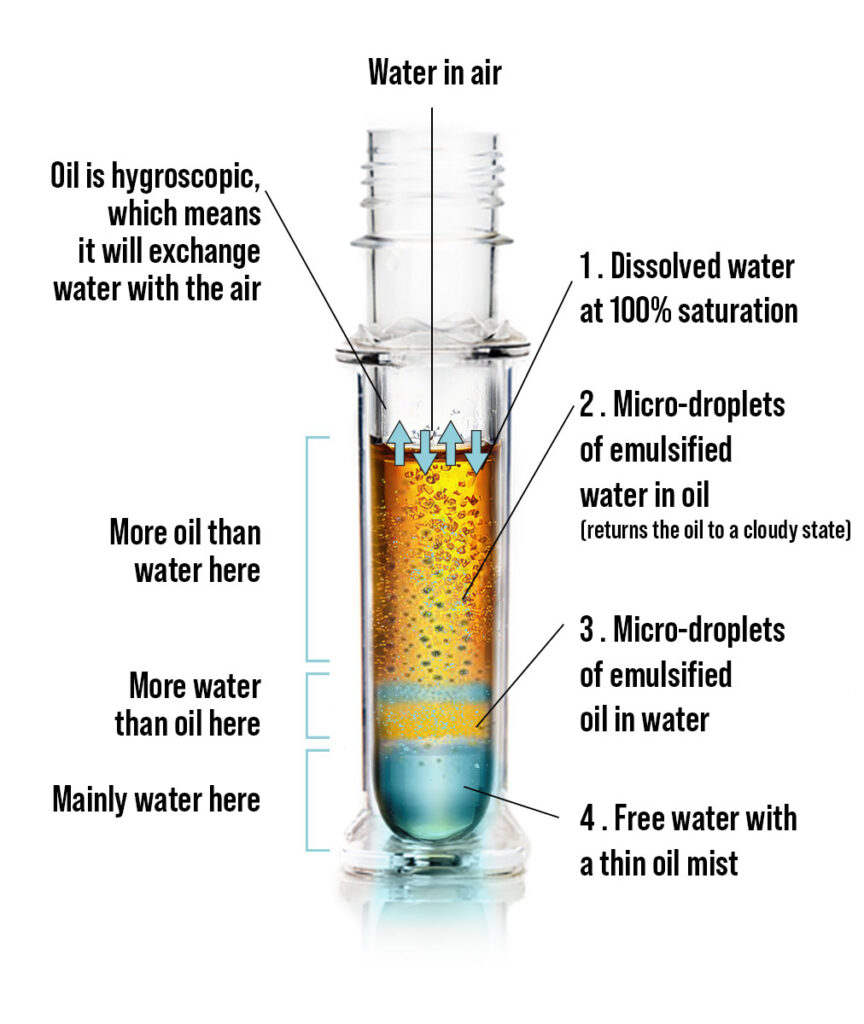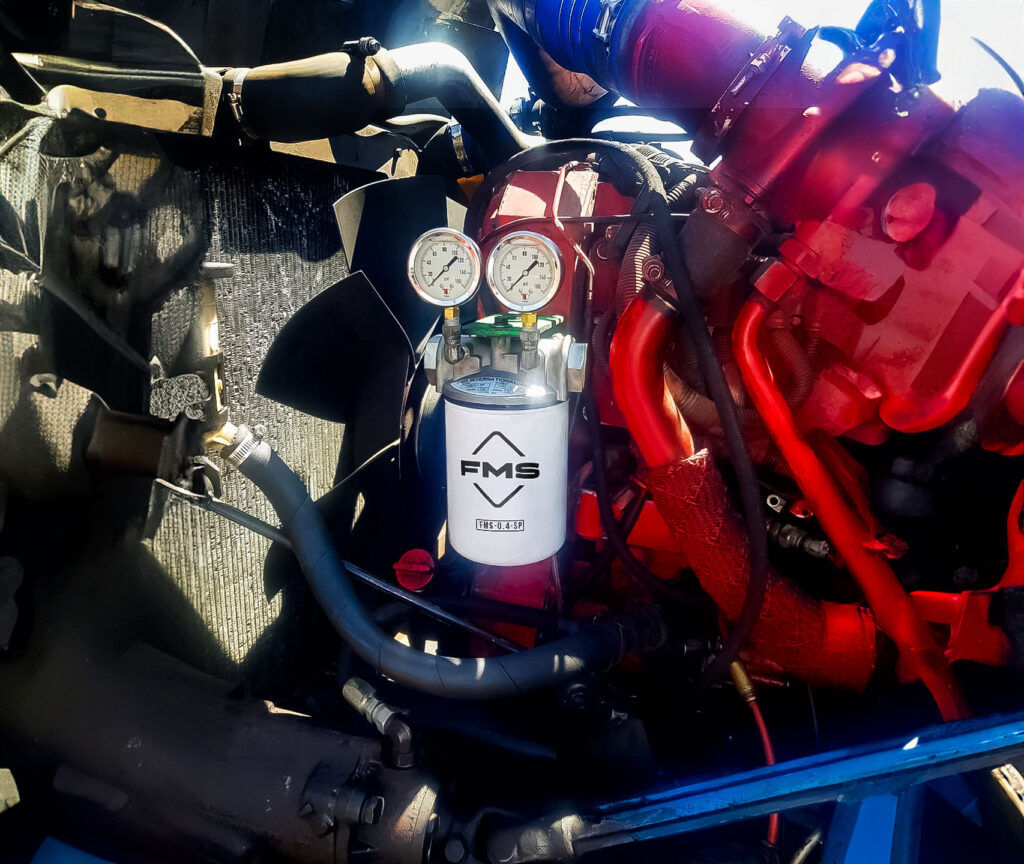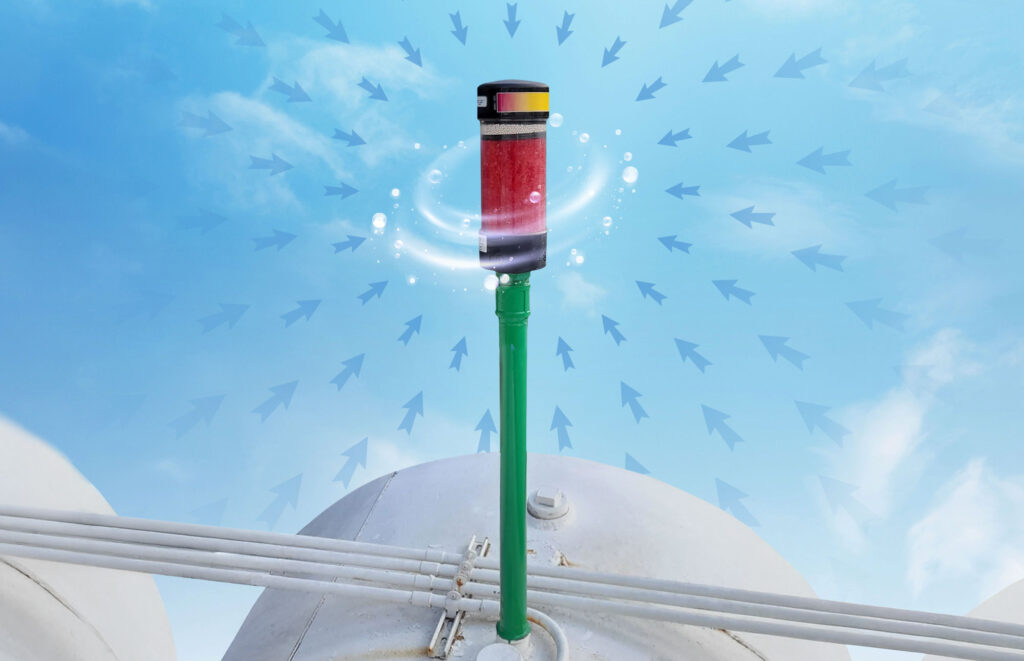Diesel is one of the most widely used fuels in the automotive industry, power generation, and other sectors. However, the presence of free and emulsified water in diesel can have significant consequences on fuel performance, injection systems, engines, and emissions. Below, we explore the negative impacts of water contamination in diesel, as well as research conducted by companies specialized in this field.
According to a study by NORIA CORPORATE titled “The Four States of Water in Oil,” water is a destructive contaminant that affects both oil and the machines and systems it lubricates.
Historically, oil contaminated with water was understood to have two states: dissolved water (molecularly bonded with the oil) and free water (unbonded and separate). In the last 30 years, a third state has been recognized: emulsified water, which remains suspended in micro-droplets within the oil and does not separate easily due to the polarity and interaction between oil, water, and additives. These micro-droplets increase the turbidity and viscosity of the oil. Emulsification can occur due to colloidal condensation or mechanical agitation, which increases the contact surface between oil and water, trapping water inside the oil.
This emulsified water can negatively affect diesel engine performance, as water-emulsified fuels have a lower energy content than conventional No. 2 diesel. Customers should expect a power reduction of at least 15% and a 15% increase in fuel consumption when using fuels emulsified with water. Due to the lower energy content of these fuels, engines may require idle governor adjustments to prevent stalling—this is noted in one of CUMMINS’ technical bulletins.
In a fourth state, water can reverse its relationship with oil, becoming the continuous phase, with oil becoming the dispersed phase. This phenomenon occurs when water exceeds oil volume, such as in certain fire-resistant hydraulic fluids. Emulsified water in oil can be especially destructive due to its ability to cause both physical and chemical damage to oil and machinery. It is critical to detect and remove water promptly, as its presence can lead to long-term damage.

IMPACTS
Impacts on the
Fuel System
Impacts on
the Engine
Microorganism Growth
Impact on
Emissions
Impacts on the
Fuel System
The presence of water in diesel fuel can lead to the formation of sediments and the corrosion of tanks, pipelines, and fuel system components. This phenomenon can result in blockages, pressure loss, and damage to injection pumps, leading to costly repairs and equipment downtime.
Impacts on
the Engine
Water present in diesel fuel can have damaging effects on engines. Fuel lubricity may decrease, leading to increased wear of engine components. Additionally, the presence of water in the cylinders can cause damage to injection systems and irregular diesel combustion, resulting in power loss and reduced efficiency. All of this is caused by the chemical reaction between the sulfur in the fuel and the water, which leads to the formation of acids that not only cause internal engine corrosion but also degrade the lubricating oil.
Microorganism
Growth
Free and emulsified water in diesel creates a favorable environment for the growth of microorganisms, such as bacteria and fungi. These microorganisms can clog fuel filters, form biofilms on metal surfaces, and accelerate diesel degradation, ultimately affecting the fuel’s quality and stability.
Impact on
Emissions
The presence of water in diesel fuel can affect diesel engine emissions, contributing to incomplete combustion and undesired emissions. Microorganisms present in the fuel can also generate volatile organic compounds and acids that impact emission quality.
Studies Conducted by Industry Experts
ExxonMobil Research and Engineering Company: ExxonMobil has conducted extensive research on the presence of water in diesel fuel and its impacts on fuel systems and engines. Their studies have provided detailed insights into the mechanisms of corrosion, sediment formation, and fuel degradation caused by water contamination.
CUMMINS: Cummins reports that emulsified water can cause up to a 15% loss of engine power, which may also lead to a similar increase in fuel consumption.
Bosch Automotive Diesel Systems*: Recognized as a leader in diesel injection systems, Bosch has conducted research on the influence of water on injection components and its effects on engine efficiency and emissions.
Repsol Research and Development Center*: Repsol, a leading company in the fuels sector, has investigated the effects of water contamination in diesel on fuel stability and its implications for diesel engines.
Chevron Fuel Research Lab*: Chevron has studied the formation of microorganisms in diesel fuel due to the presence of water, as well as their impact on filtration systems and engine performance.
Conclusion
In conclusion, the presence of free and emulsified water in diesel can have significant negative impacts on fuel systems, engines, and emissions. Research conducted by expert companies has revealed the complex mechanisms and consequences associated with water contamination in diesel, highlighting the importance of preventive measures and monitoring systems to ensure optimal diesel fuel quality and performance.
The use of coalescing filters is recommended when water contamination is severe or fuel consumption is high. For fuel usage up to 200,000 gallons per year, the use of water-absorbing solutions may be a viable alternative.
References
- Free Water in Diesel Fuel: Challenges and Solutions, ExxonMobil Research and Engineering Company.
- Influence of Water Contamination on Diesel Fuel Injection Systems, Bosch Automotive Diesel Systems.
- Impact of Water Contamination on Diesel Fuel Stability, Repsol Research and Development Center.
- Microbial Contamination in Diesel Fuel: Implications for Filtration and Engine Performance, Chevron Fuel Research Lab.



